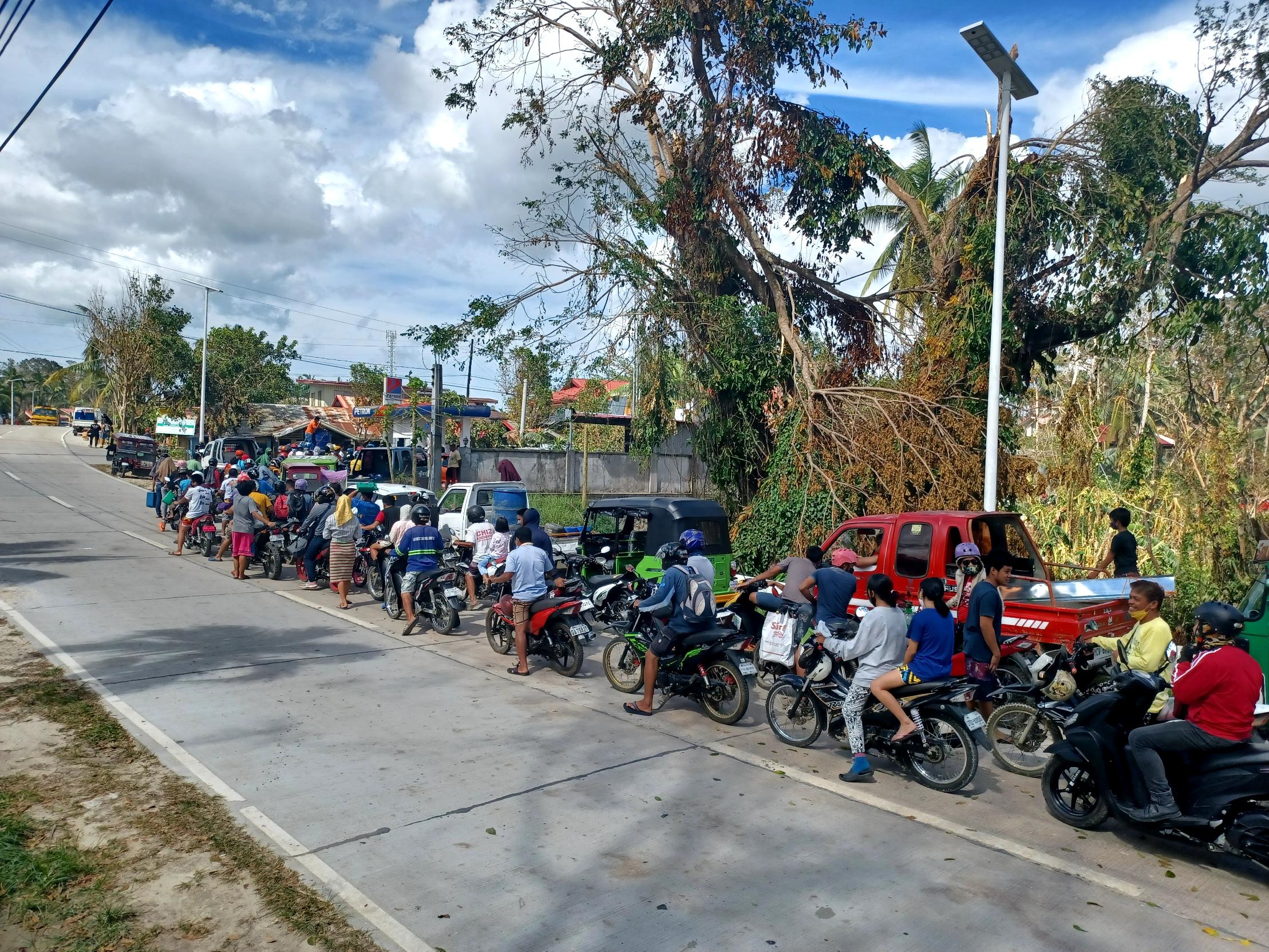Super typhoon RAI (locally called “Odette”) hit the Philippines a record-breaking nine times between December 16th and 18th, destroying numerous regions along the way. Over 1 million people have been affected, with more than 400,000 displaced in evacuation centers and another 64,000 people displaced outside of centers. While official numbers remain unclear, many are reporting over 300 casualties.
The storm brought significant flooding and 125mph winds, damaging and destroying roads, bridges, key infrastructure and over 6,000 homes. Hundreds of cities remain without reliable electricity, communication methods or access to basic goods.
Humanity & Inclusion (HI) arrives on-site
HI was among the first actors to arrive in Bohol, one of the most affected areas, where the organization is conducting needs assessments to determine the most appropriate intervention, limitations and outcomes.
“Christmas is coming and thousands of families are homeless. People are feeling helpless and seeking assistance, but very limited assistance is available,” says Alvin Dumduma, HI project manager in the Philippines. “The hardest thing about my job right now is seeing my countrymen thirst and starve. Two people died in Surigao city because of dehydration- they did not know where to seek or ask for help.”
Overcrowded, low-resource evacuation centers
“The scarcity of food is a major problem in the centers,” Alvin explains. “There are no hot meals and no ready-to-eat food. People have to cook their own food, but there is only one available cooker for all 800 families in one evacuation center. On top of that, there are huge protection risks. Covid has been forgotten. There is no social distancing or preventative measures - they are fitting as many people as possible into one room. Women, men and children are all in the same space. So, there are big protection concerns, especially for women and children at night.
People want to leave the centers and go back to their homes. They want to use salvaged materials and fallen trees to make a tent for shelter. This can put them in even more danger, as the materials are not stable, and in the coming days, even more rain is expected.”
Shortage of basic needs
“The lines to the gas stations, grocery stores and water stations are  getting really long. People are becoming increasingly worried that in the coming days, they will no longer have access to basic needs or gasoline, which is essential to power most machinery here. Some water is being sent, but it is not enough considering the huge number of individuals in need. So many provinces have been affected and are calling for support,” Alvin says.
getting really long. People are becoming increasingly worried that in the coming days, they will no longer have access to basic needs or gasoline, which is essential to power most machinery here. Some water is being sent, but it is not enough considering the huge number of individuals in need. So many provinces have been affected and are calling for support,” Alvin says.
“There is a lot of damage. We see children walking barefoot in debris and fallen trees. People are feeling helpless, but the HI team is still motivated and optimistic. We need to stay positive and show the affected community that we're here for them."


 getting really long. People are becoming increasingly worried that in the coming days, they will no longer have access to basic needs or gasoline, which is essential to power most machinery here. Some water is being sent, but it is not enough considering the huge number of individuals in need. So many provinces have been affected and are calling for support,” Alvin says.
getting really long. People are becoming increasingly worried that in the coming days, they will no longer have access to basic needs or gasoline, which is essential to power most machinery here. Some water is being sent, but it is not enough considering the huge number of individuals in need. So many provinces have been affected and are calling for support,” Alvin says. 

